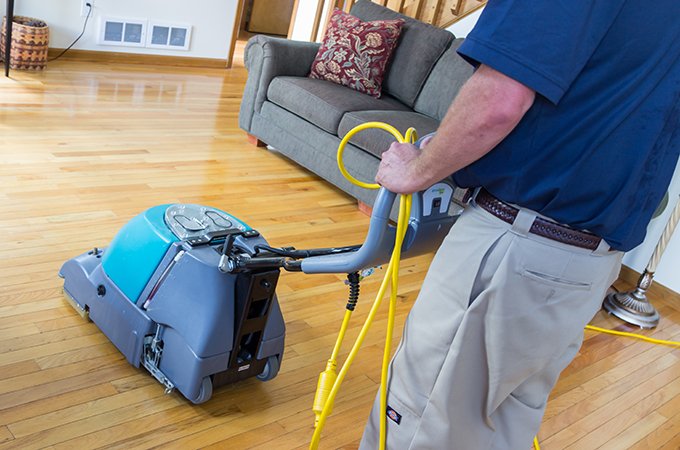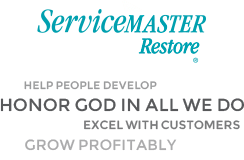
Serving Western NC and the greater Asheville Area - Available 24 Hours a Day, 7 Days a Week
How To Clean A Flooded Basement
Cleaning up a flooded basement can be a challenging and time-consuming task. Here are general steps ServiceMaster of Buncombe County follows, but keep in mind that the specific approach may vary depending on the cause of the flooding and the extent of the damage. If the flooding is severe or involves contaminated water, it may be necessary to have your insurance adjuster onsite to understand the coverage.
- Ensure Safety:
- Remove Water:
- We use a pump or a wet-dry vacuum to remove standing water from the basement. Our equipment is IICRC standard usage and is what is covered by most home insurance policies to remove the water.
- Ensure that water is pumped away from the foundation to prevent it from seeping back into the basement.
- Remove Damaged Items:
- We take pictures of everything; damaged and not damaged. Our teams work with your adjuster to dispose of damaged items that cannot be salvaged. This may include furniture, carpets, and other porous materials that may harbor mold and bacteria. These items will be counted in the insurance claim.
- If possible, salvage items that can be removed to our warehouse to be cleaned and disinfected. We can store it until the restoration work is completed.
- Clean and Disinfect:
- Cleaning surfaces with a mixture of mild detergent and water is not enough when the water is contaminated. ServiceMaster of Buncombe County uses “green” microbial cleaners and disinfectants. It is safe for your family and will keep mold from growing after the cleaning is done.
- We always protect our teams and they wear protective gear, including gloves and a mask, while cleaning and disinfecting.
- Dry the Area:
- Using dehumidifiers and fans that cannot handle the load can create an undue stress on your electrical system. Our equipment is commercial grade and will be covered by your home insurance policy.
- Monitoring the humidity levels often is important to not over dry a space or under dry it and have a feeding ground for mold and mildew.
- Inspect for Damage:
- Often times, water invades, wicks, or spreads out into areas that are not easily seen. ServiceMaster’s trained technicians and project managers inspect walls, floors, and other structural elements for damage.
- Prevent Future Flooding:
- We identify and address the cause of the flooding to prevent it from happening again. This may involve fixing leaks, improving drainage, or installing a sump pump.
- Check Insurance Coverage:
- We work directly with your insurance provider to report the damage and inquire about coverage for the cleanup and repairs. We do this for a living and will get everything possible covered and paid for by your insurance.
Remember that the above steps provide a general guideline, and the specifics of your situation may require adjustments. Always call ServiceMaster of Buncombe County to help restore your home.
Side Menu
10 out of 10










